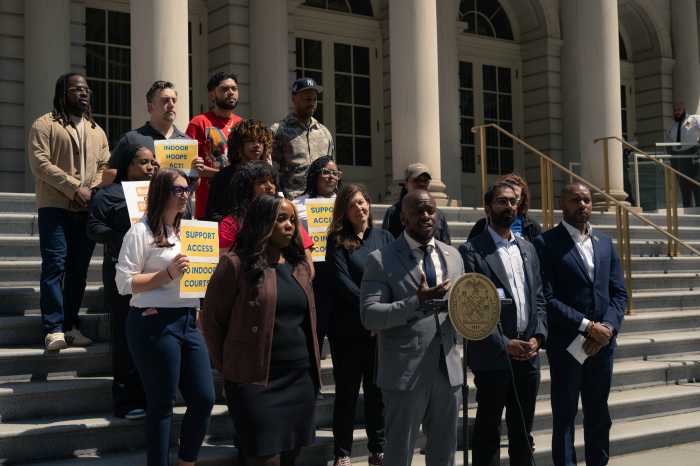History is in the making for a Broadway theater to be named in honor of a Black woman. As early as autumn, a marquee will light the Lena Horne Theater in tribute to actress Lena Horne, the Brooklyn-born actress acclaimed for her trailblazing roles and commitment to Civil Rights.
The Bedford-Stuyvesant-born native continues to blaze a trail in Black history and is the first female of her race to be distinguished along the Great White Way. Formerly known as the Brooks Atkinson Theater, the 47 th St. 1,069-seat Broadway showplace was first named for a New York Times drama critic in 1960.
At a date still unannounced, later this year, the name of the actress acclaimed for her starring role in the Broadway musical “Jamaica” will be a staple at the box office. The musical opened at the Imperial Theater on Oct. 31, 1957 and closed April 11, 1959 after 558 performances.
For her incomparable role in the musical, Horne won her first and only Tony nomination becoming the first Black woman to be nominated for a Tony award in the Best Actress In A Musical category.
Co-starring with actors Ricardo Montalban, Ossie Davis and Josephine Premice, the thespian won critical acclaim which led to numerous principal portrayals in Hollywood.
That she won three Grammy awards attests to her vocal acuity. Horne was regarded a National Treasure but she never abandoned New York City.
Before her meteoric rise to stardom, she attended Boys and Girls High School. There she developed an affinity for the performing arts. Horne was easy on the eyes and her charm and feisty demeanor did not hurt in advancing her ambitions.
Even as a teenager she was alluring.
So much so that at a young age while still in high school she managed to entice club owners to book her into singing at Greenwich Village showplaces and in Harlem’s revered Cotton Club.
Her foray to Hollywood is well documented. However, her west coast workplace was far from pleasing.
She often talked about fulfilling the dream of acting and singing, but also said she felt constrained by racist castings she said inhibited her full range. Horne was convinced she was discriminated against because of her color. She also felt less talented white actresses secured roles she was better suited to portray.
The hallmark of her lifespan is her commitment to the Civil Rights Movement. As a supporter of the NAACP she railed against lynching, fought for equal rights and participated in numerous rallies in the South.
Horne joined the throngs who demonstrated in the March on Washington in D.C. She not only attended as a speaker but performed.
At age 76 she gave a swansong performance at Lincoln Center. When she sang her signature “Stormy Weather,” Avery Fisher Hall erupted in applause that thundered throughout the west side Manhattan concert hall.
Last year Brooklyn’s Prospect Park Bandshell was renamed in honor of the song stylist who died at age 92 in 2010.
Horne’s trailblazing achievement is the second change to the Great White Way in recent months. The Cort Theater will also be renamed the James Earl Jones Theater in the Fall.
The Great White Way seems to be adding color to its hue. In 2005, fourteen days after the death of Pulitzer prize-winning playwright August Wilson, the 1,222-seat, Virginia Theater at West 52 nd St was named in honor of the Black theater legend.
‘Jamaica’ star first to color the Great White Way


























